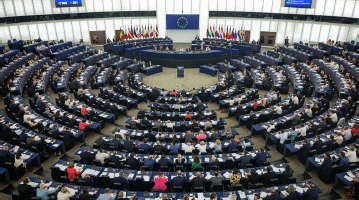So, there’s been a big conversation in Montenegro about hate speech and whether new laws are really the answer.
Vesna Rajković Nenadić from the Media Institute thinks Montenegro already has pretty solid laws to deal with hate speech. But she says they could still use some tweaks especially to make it super clear what counts as just a minor offense and what’s actually a crime.
Now, the government wants to add something new to the Criminal Code: a law about “severe hate speech” that could land someone in jail for 3 months to 3 years. Vesna says that could work if it’s actually used properly in real life.
But lawyer Veselin Radulović isn’t buying it. He says the real issue isn’t about writing new laws, it’s about actually using the ones they already have. Montenegro has all the tools it needs laws, rules, everything but the institutions (like courts and police) aren’t doing their part. He thinks the government is just doing this to look like they’re taking action, when really, they’re avoiding the actual problem: making the system work.
Vesna agrees there’s a problem with how things are applied. Right now, similar cases sometimes get labelled totally differently one might be treated as a small offense, another as a serious crime. That inconsistency is a problem.
She pointed out that hate speech is already addressed in several laws in Montenegro, including criminal and misdemeanour laws. But in practice, people often get just small fines or suspended sentences, even for more serious cases.
Most hate speech reports come from online. And here’s the kicker: a lot of the time, police can’t even figure out who’s behind the nasty comments. So, nothing happens.
That’s why Vesna believes we need more education and better use of the laws we already have, instead of making new ones all the time.
She also reminded everyone that not every rude or offensive comment is legally considered hate speech. There’s a fine line between free speech and hate speech and international standards actually help define where that line is.
Radulović agrees and adds that hate speech isn’t protected under Montenegro’s Constitution or European human rights law. He’s hopeful about a new guideline from the Chief Prosecutor, which tells prosecutors how to handle hate speech cases. If they actually follow it every time, he says, things could finally start to improve.
Written by our correspondent A.A.



